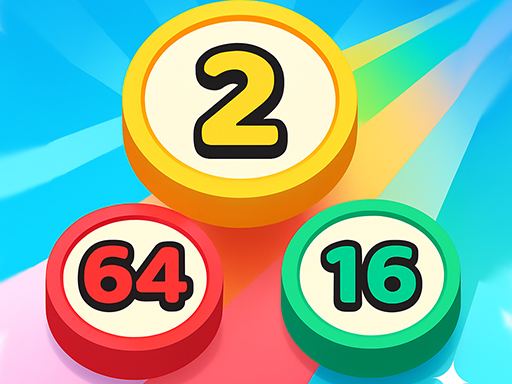Mind Melt: Thermal Puzzles
About Mind Melt: Thermal Puzzles
Dude, you absolutely *have* to hear about this game I just stumbled into. Seriously, it’s called *Mind Melt: Thermal Puzzles*, and I’m telling you, it’s not just good, it’s… it’s *mesmerizing*. I’ve been completely swallowed by it for the last three days, and when I say swallowed, I mean I’ve probably forgotten to eat at least twice because my brain was so utterly consumed by trying to get a specific block of ice to melt at precisely the right rate to open a door. It’s got that rare quality, you know? That thing where you look at the clock and realize four hours have vanished, and you’re still in your pajamas, but you don’t even care because you just figured out how to route superheated steam through a series of cryogenic chambers to activate an ancient mechanism. It’s glorious.
What I love about games like this is how they take something you might have vaguely remembered from a high school science class – like, oh, heat transfers, cool – and turn it into this incredibly tactile, dynamic puzzle playground. You remember those physics quizzes on heat and temperature? The ones where you’d have to calculate specific heat capacity or figure out how much energy it takes to boil water? Well, imagine if those concepts weren't just numbers on a page, but living, breathing elements you could manipulate with your own hands, in a beautifully rendered, almost minimalist world. That’s *Mind Melt*.
The premise is deceptively simple, which is always the mark of a truly brilliant puzzle game, in my opinion. You’re dropped into these sterile, almost futuristic environments, sometimes ancient-looking ruins, sometimes what feel like alien processing plants, and your goal is always to achieve a specific thermal state. Maybe you need to heat a target plate to exactly 100 degrees Celsius, or cool a liquid to absolute zero, or, and this is where it gets really spicy, trigger a phase change in a specific material to open a path. You're given a set of tools: heat emitters, cooling vents, various types of conductive and insulative materials, even things that can change their state based on temperature. And then it’s just… you and the problem.
The first few levels are gentle, almost like a tutorial, easing you into the mechanics. You learn that copper conducts heat like crazy, while ceramic blocks it. You see how a blast of cold air can freeze water solid, and how a focused laser can boil it away. But then, the game starts to layer these concepts. You’ll have a chamber with two separate sections, and you need to heat one while simultaneously keeping the other freezing cold. How do you do that when they share a wall? Do you create a thermal bridge and then try to siphon off the excess heat, or do you build an intricate series of baffles and vents to isolate the zones? The possibilities start to explode, and honestly, that’s when the real magic happens.
There’s something incredibly satisfying about watching the heat maps on the screen. The game uses this gorgeous, intuitive visual language where hot areas glow vibrant orange and red, while cold areas shimmer with blues and purples. You can almost feel the temperature radiating off the screen. When you place a heat emitter, you see the energy ripple outwards, slowly warming up adjacent blocks, then flowing through conductive pathways you’ve laid out. And when you finally get that perfectly balanced system, where heat is flowing exactly where you want it, at the precise rate you need, and the target temperature clicks into place, there’s this palpable *thunk* sound, a little visual flourish, and the whole level just feels… resolved. It’s like the universe itself sighs in relief. That’s the feeling that keeps pulling you back, level after level.
In my experience, the best moments come when you’re absolutely stuck. You’ve tried everything. You’ve moved the emitters, adjusted the vent strength, swapped out materials, and nothing works. You walk away, maybe grab a coffee, and then suddenly, in the middle of stirring your sugar, it hits you. “Wait a minute! What if I *don’t* try to insulate that section, but instead use it as a heat sink for the *other* side, and then cool *that* sink?” You rush back to the game, hands practically trembling with anticipation, implement your new, wild theory, and then… it works. That moment of pure, unadulterated triumph, that intellectual rush, is what makes *Mind Melt* so utterly addictive. It’s not about quick reflexes or button mashing; it’s about pure, unadulterated brain power.
What’s fascinating is how the game introduces new elements that completely flip your understanding. Just when you think you’ve mastered the basics of conduction and convection, they throw in phase-change materials. Suddenly, you’re not just moving heat, you’re using it to melt ice into water, then evaporate that water into steam, all to power a tiny turbine or open a pressure-sensitive door. Or they introduce these strange, exotic materials that have inverse thermal properties, or only conduct heat in one direction. It’s like the developers are constantly asking, “Okay, you think you’re smart? Let’s see you deal with *this*.” And you do, eventually, because the game teaches you to think like a thermal engineer, to see the world through the lens of energy transfer.
The sound design, too, is just impeccable. It’s subtle, but incredibly effective. The low hum of a heat emitter, the gentle whoosh of a cooling vent, the satisfying *clunk* of a pressure plate activating, or the soft sizzle as a block of ice slowly turns to vapor. You can almost feel the temperature changes through your headphones. It really helps you immerse yourself, making the sterile environments feel alive and reactive to your every move. You’ll find yourself leaning forward, almost squinting at the screen, trying to visualize the invisible flow of energy, listening for the subtle cues that tell you if your system is running too hot or too cold.
Honestly, I’ve always been drawn to games that challenge my mind in this way. Games like *Portal* or *The Witness* come to mind, where the puzzles aren’t just obstacles, but teaching tools that expand your way of thinking. *Mind Melt* fits right into that pantheon. It doesn't just ask you to solve a puzzle; it asks you to understand the underlying principles so deeply that you can predict the outcome of your actions. You’re not just guessing; you’re experimenting, learning, and ultimately, mastering.
The brilliant thing about this is that it doesn't feel like a science lesson, even though you're essentially applying real-world physics. It feels like a creative sandbox. You're given these fundamental building blocks, and then you're set loose to build incredibly intricate, Rube Goldberg-esque solutions. Sometimes my solutions are elegant and efficient, sometimes they’re a glorious mess of pipes and vents that barely hold together, but they work, and that’s what matters. And then you think, "Could I have done that better?" And that's what keeps you coming back, optimizing, trying to find that perfect, minimalist solution that feels like a stroke of genius.
Just wait until you encounter the levels where time becomes a factor. You don't just need to reach a temperature; you need to reach it *within a specific timeframe*, or maintain it for a duration, or have two different targets hit their temperatures simultaneously. That’s when the tension really ramps up. Your heart rate actually starts to increase as you watch the temperature gauges inch towards their goals, hoping your calculations were precise enough, that your thermal pathways are efficient enough. That moment when everything aligns perfectly, and the final gate slides open with a satisfying *whirr*, it’s pure exhilaration. You can almost feel the weight of the invisible controller in your hands, the tension in your shoulders releasing.
This makes me wonder about the developers, honestly. How do they come up with these increasingly complex scenarios? The sheer ingenuity of the puzzle design is astounding. Each new mechanic feels fresh and meaningful, never just tacked on for complexity's sake. They build upon what you've learned, gently pushing you outside your comfort zone, forcing you to think laterally and creatively.
So yeah, if you're looking for a game that will genuinely challenge you, that will make you feel incredibly smart when you crack a tough nut, and that will make hours disappear like they're nothing, you absolutely, unequivocally need to check out *Mind Melt: Thermal Puzzles*. It’s not just a game; it’s an experience. It’s that rare gem that combines intellectual rigor with pure, unadulterated fun. Trust me on this one. You'll thank me later.
What I love about games like this is how they take something you might have vaguely remembered from a high school science class – like, oh, heat transfers, cool – and turn it into this incredibly tactile, dynamic puzzle playground. You remember those physics quizzes on heat and temperature? The ones where you’d have to calculate specific heat capacity or figure out how much energy it takes to boil water? Well, imagine if those concepts weren't just numbers on a page, but living, breathing elements you could manipulate with your own hands, in a beautifully rendered, almost minimalist world. That’s *Mind Melt*.
The premise is deceptively simple, which is always the mark of a truly brilliant puzzle game, in my opinion. You’re dropped into these sterile, almost futuristic environments, sometimes ancient-looking ruins, sometimes what feel like alien processing plants, and your goal is always to achieve a specific thermal state. Maybe you need to heat a target plate to exactly 100 degrees Celsius, or cool a liquid to absolute zero, or, and this is where it gets really spicy, trigger a phase change in a specific material to open a path. You're given a set of tools: heat emitters, cooling vents, various types of conductive and insulative materials, even things that can change their state based on temperature. And then it’s just… you and the problem.
The first few levels are gentle, almost like a tutorial, easing you into the mechanics. You learn that copper conducts heat like crazy, while ceramic blocks it. You see how a blast of cold air can freeze water solid, and how a focused laser can boil it away. But then, the game starts to layer these concepts. You’ll have a chamber with two separate sections, and you need to heat one while simultaneously keeping the other freezing cold. How do you do that when they share a wall? Do you create a thermal bridge and then try to siphon off the excess heat, or do you build an intricate series of baffles and vents to isolate the zones? The possibilities start to explode, and honestly, that’s when the real magic happens.
There’s something incredibly satisfying about watching the heat maps on the screen. The game uses this gorgeous, intuitive visual language where hot areas glow vibrant orange and red, while cold areas shimmer with blues and purples. You can almost feel the temperature radiating off the screen. When you place a heat emitter, you see the energy ripple outwards, slowly warming up adjacent blocks, then flowing through conductive pathways you’ve laid out. And when you finally get that perfectly balanced system, where heat is flowing exactly where you want it, at the precise rate you need, and the target temperature clicks into place, there’s this palpable *thunk* sound, a little visual flourish, and the whole level just feels… resolved. It’s like the universe itself sighs in relief. That’s the feeling that keeps pulling you back, level after level.
In my experience, the best moments come when you’re absolutely stuck. You’ve tried everything. You’ve moved the emitters, adjusted the vent strength, swapped out materials, and nothing works. You walk away, maybe grab a coffee, and then suddenly, in the middle of stirring your sugar, it hits you. “Wait a minute! What if I *don’t* try to insulate that section, but instead use it as a heat sink for the *other* side, and then cool *that* sink?” You rush back to the game, hands practically trembling with anticipation, implement your new, wild theory, and then… it works. That moment of pure, unadulterated triumph, that intellectual rush, is what makes *Mind Melt* so utterly addictive. It’s not about quick reflexes or button mashing; it’s about pure, unadulterated brain power.
What’s fascinating is how the game introduces new elements that completely flip your understanding. Just when you think you’ve mastered the basics of conduction and convection, they throw in phase-change materials. Suddenly, you’re not just moving heat, you’re using it to melt ice into water, then evaporate that water into steam, all to power a tiny turbine or open a pressure-sensitive door. Or they introduce these strange, exotic materials that have inverse thermal properties, or only conduct heat in one direction. It’s like the developers are constantly asking, “Okay, you think you’re smart? Let’s see you deal with *this*.” And you do, eventually, because the game teaches you to think like a thermal engineer, to see the world through the lens of energy transfer.
The sound design, too, is just impeccable. It’s subtle, but incredibly effective. The low hum of a heat emitter, the gentle whoosh of a cooling vent, the satisfying *clunk* of a pressure plate activating, or the soft sizzle as a block of ice slowly turns to vapor. You can almost feel the temperature changes through your headphones. It really helps you immerse yourself, making the sterile environments feel alive and reactive to your every move. You’ll find yourself leaning forward, almost squinting at the screen, trying to visualize the invisible flow of energy, listening for the subtle cues that tell you if your system is running too hot or too cold.
Honestly, I’ve always been drawn to games that challenge my mind in this way. Games like *Portal* or *The Witness* come to mind, where the puzzles aren’t just obstacles, but teaching tools that expand your way of thinking. *Mind Melt* fits right into that pantheon. It doesn't just ask you to solve a puzzle; it asks you to understand the underlying principles so deeply that you can predict the outcome of your actions. You’re not just guessing; you’re experimenting, learning, and ultimately, mastering.
The brilliant thing about this is that it doesn't feel like a science lesson, even though you're essentially applying real-world physics. It feels like a creative sandbox. You're given these fundamental building blocks, and then you're set loose to build incredibly intricate, Rube Goldberg-esque solutions. Sometimes my solutions are elegant and efficient, sometimes they’re a glorious mess of pipes and vents that barely hold together, but they work, and that’s what matters. And then you think, "Could I have done that better?" And that's what keeps you coming back, optimizing, trying to find that perfect, minimalist solution that feels like a stroke of genius.
Just wait until you encounter the levels where time becomes a factor. You don't just need to reach a temperature; you need to reach it *within a specific timeframe*, or maintain it for a duration, or have two different targets hit their temperatures simultaneously. That’s when the tension really ramps up. Your heart rate actually starts to increase as you watch the temperature gauges inch towards their goals, hoping your calculations were precise enough, that your thermal pathways are efficient enough. That moment when everything aligns perfectly, and the final gate slides open with a satisfying *whirr*, it’s pure exhilaration. You can almost feel the weight of the invisible controller in your hands, the tension in your shoulders releasing.
This makes me wonder about the developers, honestly. How do they come up with these increasingly complex scenarios? The sheer ingenuity of the puzzle design is astounding. Each new mechanic feels fresh and meaningful, never just tacked on for complexity's sake. They build upon what you've learned, gently pushing you outside your comfort zone, forcing you to think laterally and creatively.
So yeah, if you're looking for a game that will genuinely challenge you, that will make you feel incredibly smart when you crack a tough nut, and that will make hours disappear like they're nothing, you absolutely, unequivocally need to check out *Mind Melt: Thermal Puzzles*. It’s not just a game; it’s an experience. It’s that rare gem that combines intellectual rigor with pure, unadulterated fun. Trust me on this one. You'll thank me later.
Enjoy playing Mind Melt: Thermal Puzzles online for free on Colosm. This Puzzle game offers amazing gameplay and stunning graphics. No downloads required, play directly in your browser!
How to Play
Click on the CORRECT option





Comments
This game is awesome! I love the graphics and gameplay.
One of the best games I've played recently. Highly recommended!